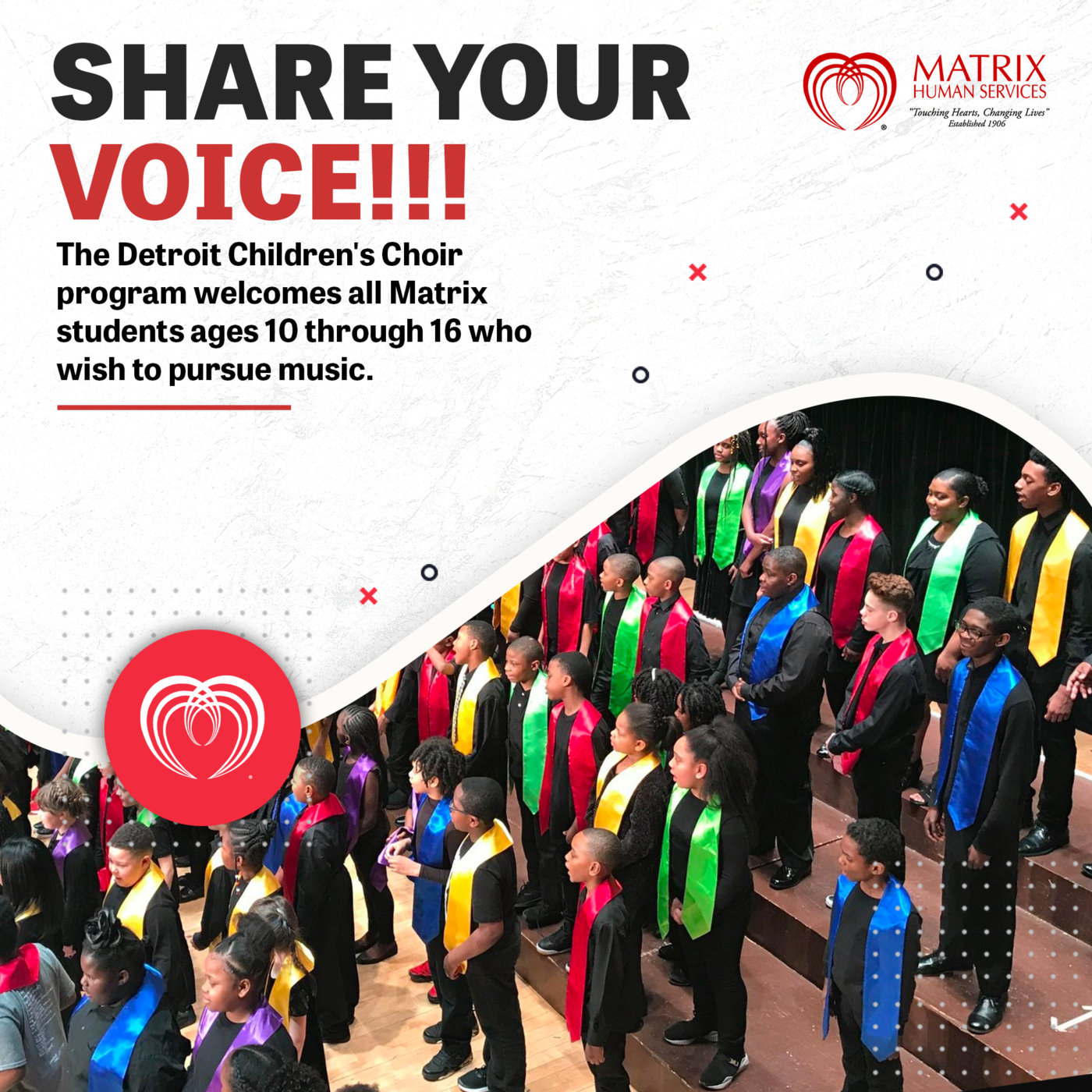“Music can unlock a student's full potential. It offers an avenue for students to express themselves, be reflective, develop critical thinking skills and experience self-love.”
Eric Taylor, Artistic Director, Detroit Children’s Choir
Detroit, MI (February, 2021) - The Detroit Children’s Choir utilizes the power of choral music education to foster musical excellence and build an inclusive community of creative, confident, and focused youth and teens. The organization provides programs on-site at schools and community hubs, reaching the city’s most isolated and vulnerable student populations where transportation is a challenge.
Currently, only 39 out of 86 schools in the Detroit Public Schools Community District offer music education. The Detroit Children’s Choir’s programs are established at schools where no music programming was previously in place, directly serving and benefiting the youth who take part.
“A music education is so important for students. Music allows for that emotional and aesthetic response to the world. It's also an opportunity for students to talk about the arts, and to be able to develop those critical thinking skills that allow them to succeed in life,” says Eric Taylor.
Supported by the Walters Family Foundation, the Detroit Children’s Choir is providing two years of music programming for 75 youth, grades 3-12 as part of Matrix Human Services suite of youth services. Originally, the choir program was scheduled to take place in the Matrix Hub on the East Side of Detroit, but due to the pandemic, plans quickly changed and classes are taking place virtually on Zoom.

“It's a highlight of the day for students,” says Taylor. “Many are on their computer from 8-3 experiencing Zoom burnout, but in the choir, students come in, stand up, sing and move. Students get to get up and express themselves.”
The curriculum includes one and a half hours per week of vocal training for 30 weeks each year. In classes, students learn to sing and play in a small group with accurate pitch, intonation, rhythm, and technique within various music contexts. They learn how to read music, to recognize the basic expressive markings of music and use music and aesthetic vocabulary to describe their personal response. What’s more, no student is left behind. In the inclusive environment, all students are accepted and coached no matter what their vocal ability.
“The youth we serve are at risk and some of them have no support system,” says Amber Lee-Trimiew, Prevention Specialist Supervisor. “They use music as a coping strategy, to cope with quarantining, being out of school and other challenges they may face at home. This program is allowing them to have that fun, energetic, engaging component in their world that they're currently lacking due to COVID.”
After successful completion, the students have an understanding of music literacy and performance that allows them to develop confidence and focus. In addition, all participants have access to Matrix Youth Supportive Services such as Life Skills and Career Exploration Zoom sessions. Altogether, these services help students develop self-sufficiency through positive hand-up life experiences.
“We're hoping that after the pandemic, participation in the Detroit Children's Choir will allow students to say, ‘I was resilient throughout the pandemic. I participated in a group. I participated in choir lessons. I can do anything,’” says Lee-Trimiew.

